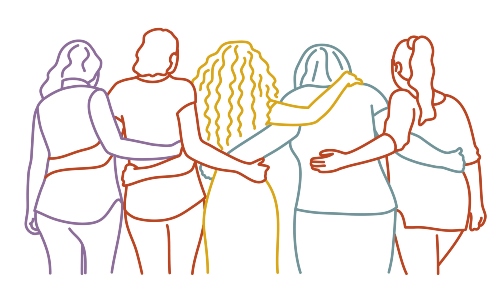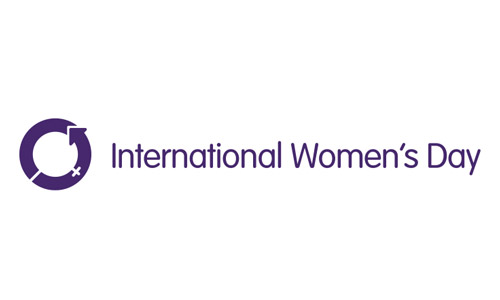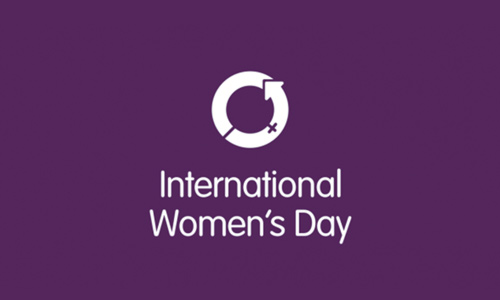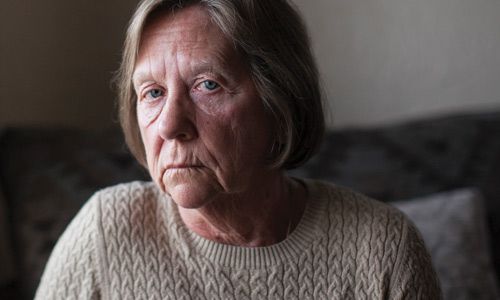Each year, International Women’s Day (8 March) provides an opportunity to recognise women’s achievements and to reflect on the many challenges still being faced.
In celebration of this year’s theme – Embrace Equity – we’re profiling the inspiring women linked to Age UK’s work who are doing just that.
Katrina is creating fair chances for friendship
For the past seven years, Katrina has worked as the Healthy Living and Learning Services Manager for Age UK Lewisham & Southwark. During that time, she’s played a key role in helping to increase the variety of services offered.

“We run everything from IT and entrepreneurship courses to lunch clubs and cheerleading classes,” explains Katrina. “It’s really important to us that people can make informed decisions about managing their health, so we also host regular talks from organisations like Diabetes UK and the British Heart Foundation.”
“A lot of the ladies who use our services have had busy lives raising their families or working difficult jobs. For years they devoted all their time to their partners and children and never had the chance to form lasting friendships. Now they’re older, they’re finally taking time for themselves.
“So many of them have become social butterflies! Our monthly theatre trips are always sold out, we throw some fabulous parties, and lots of the women turn up to classes in matching t-shirts and hats.
“But there’s also a deeper level of friendship that’s being made. When one of the ladies who uses our services lost her partner, it was the friends she’d made at our classes who accompanied her in the funeral car. It was really moving.
“So many of the ladies who use our services downplay their achievements, but I’d love for them to appreciate their own power. They weren’t ‘just staying home with the kids’ – they were managing a household and raising amazing human beings! I don’t think some of them realise the doors that their generation opened for younger women.
“Achieving equity is an individual journey, but I hope that every woman using our services can understand how amazing she is and that she deserves to prioritise herself.”
Alysha is ensuring that all experiences are recognised
Alysha is the Head of Organisation, Culture and People Development at Age UK. Part of her role focuses on supporting employees’ wellbeing and individual needs, and ensuring that every person working at Age UK has a positive experience.

“I want everyone at Age UK to feel that they can bring their whole selves to work,” says Alysha. “And a big part of that is making sure that everyone’s perspectives, talents and qualities are recognised and valued.
“So, to me, gender equity is about appreciating that everyone brings something different to the table, based on their own life experiences. It’s also important to remember that people have different relationships with gender – people who are nonbinary and transgender need to be included in the conversation about gender equity too.
“One way we’ve been working to create better gender equity at Age UK is by improving how we support staff through the menopause. It can be a significant upheaval in someone’s life, the symptoms can be really severe, and the perimenopause can last up to 15 years. It’s not something that can or should be ignored!
“So in October 2021, we started meeting with staff to better understand the effects the menopause can have on women’s day-to-day lives. After listening to employees’ experiences, we’ve introduced e-learning modules and Menopause Champions, to help increase awareness and support women as and when they need it.
“Our next step is to improve our support systems for employees going through other difficult, gendered experiences – like IVF treatment and miscarriages. Imagine having a really difficult call with your doctor about your fertility and five minutes later having to go and lead a work meeting. We need to appreciate the impact of that.
“Everyone’s needs are different, but I want all employees to feel compassionately supported by their managers and workplace policies, so that we can all feel happier – in and out of work.”
Lucy is advocating for a fair and fulfilling later life
Lucy is passionate about health and wellbeing, and for many years has worked with a wide range of local groups and forums to ensure older people receive equal access to services. Since 2010, she has been a vital member of the Age UK Services Sounding Board.
“ A lot of people think ‘oh, you’re getting old – you’ve lost your marbles, or you never had them to begin with!’,” laughs Lucy. “I always wanted to prove a point.”
A lot of people think ‘oh, you’re getting old – you’ve lost your marbles, or you never had them to begin with!’,” laughs Lucy. “I always wanted to prove a point.”
“As an older person and accredited Dignity Champion, I think it’s vital that older women – and the wider ageing population – receive high-quality services that are appropriate to their needs. I am passionate in my endeavour to ensure older people have a voice and are given the respect and dignity every one of us is entitled to.
“When I first retired and moved to Leicester to be near my family, I left all my activities and friendships from Sheffield behind. But now I run an art group, I’m involved with the U3A, and I go swimming twice a week. I try to promote exercise among my friends – even if it’s just getting up and moving around during TV adverts! I was an athlete as a child, so I’ve always been interested in keeping moving.
“In my time as Chair of the Leicestershire Older People’s Engagement Network, I also organised four intergenerational events with local teenagers. The older people taught arts, crafts and music – one child was very excited to learn how to knit! – and the teenagers taught us how to better use technology. I think we had a lot in common – adolescence and older age are both quite insecure times in life. I’m a firm believer that those events helped us generate more respect for one another.”
Alison is fighting for equity around the world
Alison is an activist for women’s equality and has over 25 years’ experience working in international development. She joined Age International as CEO in August 2022.
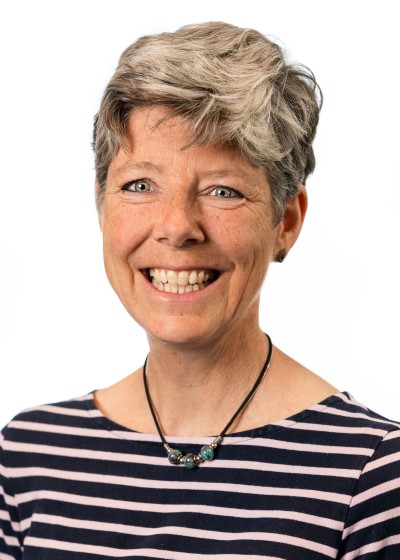 “International Women’s Day is a great opportunity to celebrate the progress we’ve made,” says Alison, “but it’s also a time to take stock of the remaining challenges – and there are many. Women’s access to health care remains a huge issue across the world, including the struggle around reproductive rights.
“International Women’s Day is a great opportunity to celebrate the progress we’ve made,” says Alison, “but it’s also a time to take stock of the remaining challenges – and there are many. Women’s access to health care remains a huge issue across the world, including the struggle around reproductive rights.
Top of mind are the challenges in Afghanistan. Women had already been barred from education and many workplaces, and then on 24 December 2022, the Taliban banned women from working with NGOs.
“Female aid workers are needed to deliver support to women and girls. This ban has severely disrupted the ability of our partners to assist older women and people with disabilities in Afghanistan. Despite the intervention of the United Nations, there’s no sense of when the situation may change.
“More positively, it's been heartening to see that HelpAge is promoting older women's rights at the UN Commission on the Status of Women meeting, in New York.”
This year, Age International is focused on promoting healthy ageing – including gender appropriate access to healthcare. “Gender is no longer understood as a binary, and it’s crucial that every older person receives the information, care and services that are right for them.”
Alison is proud that Age International funds programmes and advocacy that are tackling the fundamental causes of gender inequality, in support of progress towards a more equitable world.
Use your voice for change
Discover how you can push for the rights of older women - and all older people - by signing up to our campaigns newsletter.


